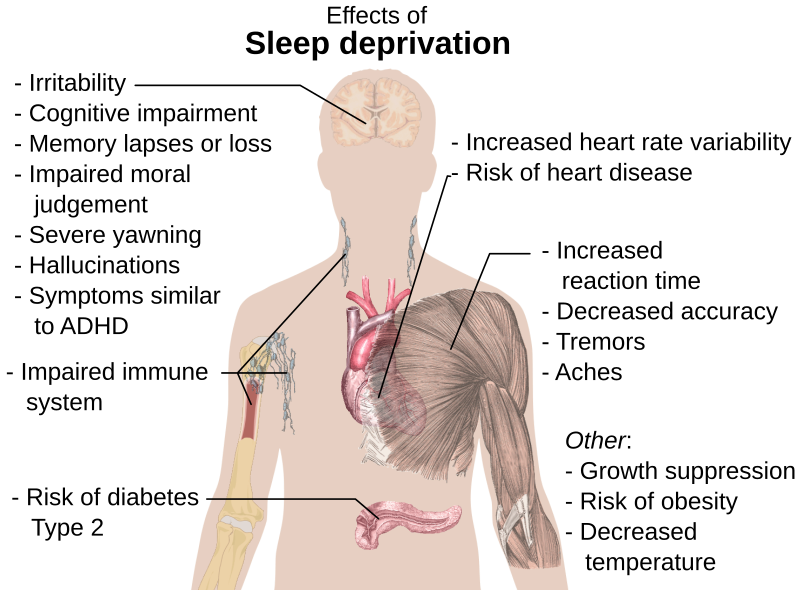The optimal amount of sleep is not a meaningful concept unless the timing of that sleep is seen in relation to an individual's circadian rhythms. A person's major sleep episode is relatively inefficient and inadequate when it occurs at the "wrong" time of day; one should be asleep at least six hours before the lowest body temperature.
The timing is correct when the following two circadian markers occur after the middle of the sleep episode and before awakening:
- maximum concentration of the hormone melatonin, and
- minimum core body temperature.
| Age and condition | Sleep Needs |
|---|---|
| Newborns (0–2 months) | 12 to 18 hours |
| Infants (3–11 months) | 14 to 15 hours |
| Toddlers (1–3 years) | 12 to 14 hours |
| Preschoolers (3–5 years) | 11 to 13 hours |
| School-age children (5–10 years) | 10 to 11 hours |
| Adolescents (10–17 years) | 8.5 to 9.25 hours |
| Adults, including elderly | 7 to 9 hours |
| Pregnant women | 8(+) hour |
Children need more sleep per day in order to develop and function properly: up to 18 hours for newborn babies, with a declining rate as a child ages. A newborn baby spends almost 9 hours a day in REM sleep. By the age of five or so, only slightly over two hours is spent in REM. Studies say that school age children need about 10 to 11 hours of sleep.
Sleep debt is the effect of not getting enough sleep; a large debt causes mental, emotional and physical fatigue.
Sleep debt results in diminished abilities to perform high-level cognitive functions.


No comments:
Post a Comment